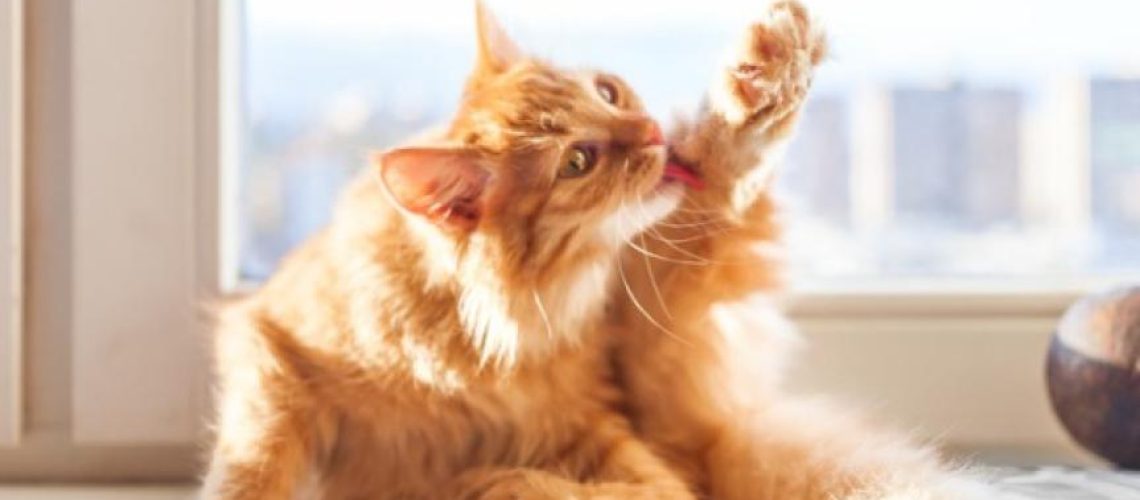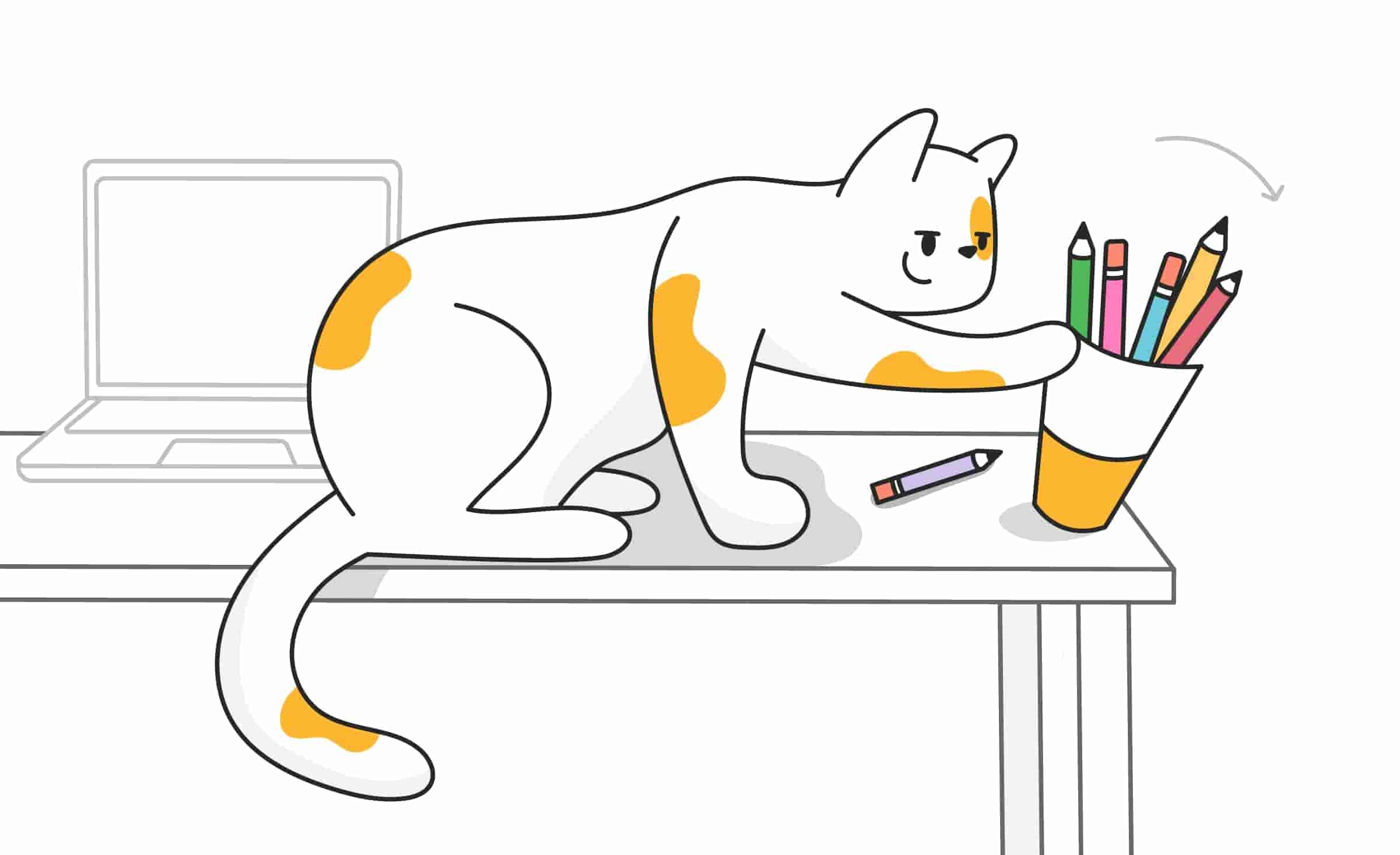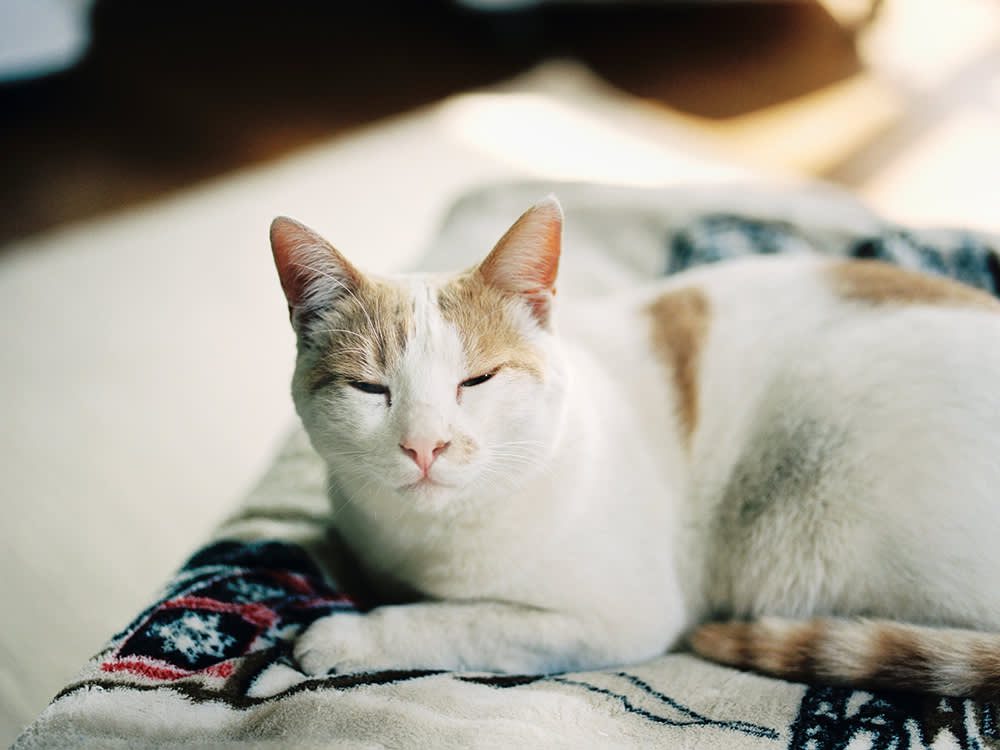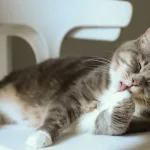Are you a cat lover who can't resist the allure of a fluffy feline friend? If so, you're in for a treat! Today, we're diving into the fascinating world of fluffy overgroomers - those adorable kitties who just can't stop primping themselves. But why do they do it? And more importantly, how can we help them? By understanding the reasons behind this behavior and learning how to support our furry companions, we can ensure their well-being and deepen the bond we share with them. So join us as we uncover the secrets of fluffy overgroomers and discover how to be their ultimate allies. Get ready to unlock a whole new level of connection with your beloved kitty!
Key Takeaways:
- Fluffy overgrooming is a common behavior in cats and can be caused by various factors such as stress, anxiety, or medical issues.
- Overgrooming can lead to skin irritation, hair loss, and even secondary infections if not addressed promptly.
- If your cat is exhibiting excessive grooming behavior, it is essential to rule out any underlying medical conditions by consulting with a veterinarian.
- To help reduce overgrooming in cats, provide them with environmental enrichment such as interactive toys, scratching posts, and hiding spots.
- Implementing stress-reducing techniques like creating a calm environment and using pheromone diffusers can also aid in managing overgrooming behavior in cats.
Understanding Overgrooming in Cats: Causes and Effects
What is overgrooming?
Overgrooming is a behavior in cats where they excessively lick, chew, or scratch themselves. While grooming is a normal part of a cat's routine, overgrooming becomes a problem when it leads to hair loss, skin irritation, or even wounds. Cats can overgroom various parts of their bodies, such as their bellies, legs, or tails.
Causes of overgrooming
There can be several reasons why a cat may start overgrooming. One common cause is allergies. Just like humans, cats can be allergic to certain foods, fleas, or environmental factors like pollen or dust mites. These allergies can make their skin itchy and uncomfortable, leading to excessive grooming.
Another cause could be stress or anxiety. Cats are sensitive creatures and can become anxious due to changes in their environment or routine. This anxiety may manifest as overgrooming as a way for the cat to self-soothe.
The Impact of Overgrooming on a Cat's Health and Happiness
Effects on the skin and coat
Over time, excessive grooming can lead to problems with the cat's skin and coat. The constant licking and scratching can damage the fur and cause bald patches to appear. Additionally, the cat's skin may become red, inflamed, or develop sores from the excessive scratching.
Psychological impact
Overgrooming not only affects a cat physically but also emotionally. It can be distressing for cats to constantly feel the need to groom themselves excessively. This behavior may indicate underlying stress or anxiety that needs attention.
Why Some Cats Are More Prone to Overgrooming: Uncovering the Reasons
Breed and genetics
Certain cat breeds, such as Siamese or Burmese cats, are more prone to overgrooming due to their genetic makeup. These breeds have a higher likelihood of developing skin sensitivities or allergies, which can trigger excessive grooming.
Environmental factors
The environment in which a cat lives can also play a role in their tendency to overgroom. Cats that live in stressful or chaotic environments may be more prone to develop overgrooming habits as a way to cope with their surroundings.
Signs of Overgrooming in Cats: How to Spot the Behavior
Visible hair loss and bald patches
One of the most obvious signs of overgrooming is when you notice areas on your cat's body where there is significant hair loss or bald patches. These areas may appear red or irritated due to the constant licking and scratching.
Excessive grooming sounds
If you hear your cat constantly licking or chewing themselves, it could be a sign of overgrooming. These sounds may be more frequent than normal grooming behaviors and can indicate an issue.
Stress and Anxiety: Contributing Factors to a Cat's Excessive Grooming Habits
Changes in routine or environment
Cats are creatures of habit, and any sudden changes in their routine or environment can cause stress and anxiety. Moving to a new home, introducing new pets, or even rearranging furniture can disrupt their sense of security and lead to overgrooming behaviors.
Lack of stimulation
Cats need mental and physical stimulation to stay happy and content. If they are not provided with enough playtime, toys, or environmental enrichment, they may become bored and anxious, resorting to overgrooming as a way to alleviate their restlessness.
Tackling Overgrooming in Cats: Effective Strategies and Techniques
Veterinary consultation
If you notice your cat overgrooming, it is essential to consult with a veterinarian. They can help determine the underlying cause of the behavior and provide appropriate treatment options. This may include allergy testing, medication, or behavioral modifications.
Reducing stressors
Identifying and minimizing stressors in your cat's environment can help reduce overgrooming. Providing a calm and predictable routine, creating safe spaces for your cat to retreat to, and using pheromone diffusers can all contribute to reducing their anxiety levels.
When to Seek Veterinary Help for Your Cat's Overgrooming Behavior
Worsening skin conditions
If your cat's overgrooming behavior is causing severe skin irritation, open wounds, or infections, it is crucial to seek immediate veterinary assistance. These conditions may require medical intervention to prevent further complications.
Persistent overgrooming despite interventions
If you have tried various strategies to address your cat's overgrooming but the behavior persists or worsens, it is advisable to consult with a veterinarian. They can assess the situation more comprehensively and suggest alternative approaches or treatments tailored specifically for your cat's needs.
In conclusion, cats may overgroom due to stress, boredom, or medical issues. To help them, provide a stimulating environment, reduce stressors, and consult with a veterinarian for proper diagnosis and treatment. By understanding the reasons behind overgrooming and taking appropriate steps, we can ensure our furry friends stay happy and healthy.
What causes cats to overgroom themselves?
Overgrooming in cats can be caused by either behavioral issues, where excessive licking is a form of stress relief, or medical issues, such as skin allergies or skin parasites.
How can I destress my cat?
To keep cats mentally and physically stimulated, it is beneficial to provide them with food puzzles, vertical spaces for climbing and observing their surroundings, scratching posts, access to a safe outdoor area such as a catio, window perches, and interactive toys. According to Delgado, playing is crucial for cats to relieve stress and release happy hormones.
Are there calming treats for cats?
NaturVet offers a calming aid for cats called Quiet Moments, which includes melatonin. It comes in soft chew form and contains 60 chews. This product helps to reduce stress and promote relaxation in cats, making it beneficial during storms, fireworks, travel, and grooming.
Can I give my cat Benadryl?
Benadryl, also known as diphenhydramine, is a frequently used antihistamine for cats to alleviate allergic symptoms like itching and hives. The appropriate dosage for cats is 1mg per pound of body weight, administered 2-3 times per day.
Can cats have Benadryl for grooming?
While diphenhydramine is generally considered safe for use in cats, it can have various side effects. These may include sedation, which can be significant, as well as excitement, which is the opposite of the expected sedation and can be a notable side effect.
Should I put a cone on my cat for overgrooming?
If your cat is excessively grooming, pulling out fur, or chewing on their skin due to stress, veterinarians may recommend using a cone. However, the issue is that wearing a large, rigid plastic cone around the neck is not natural for cats or humans.

















